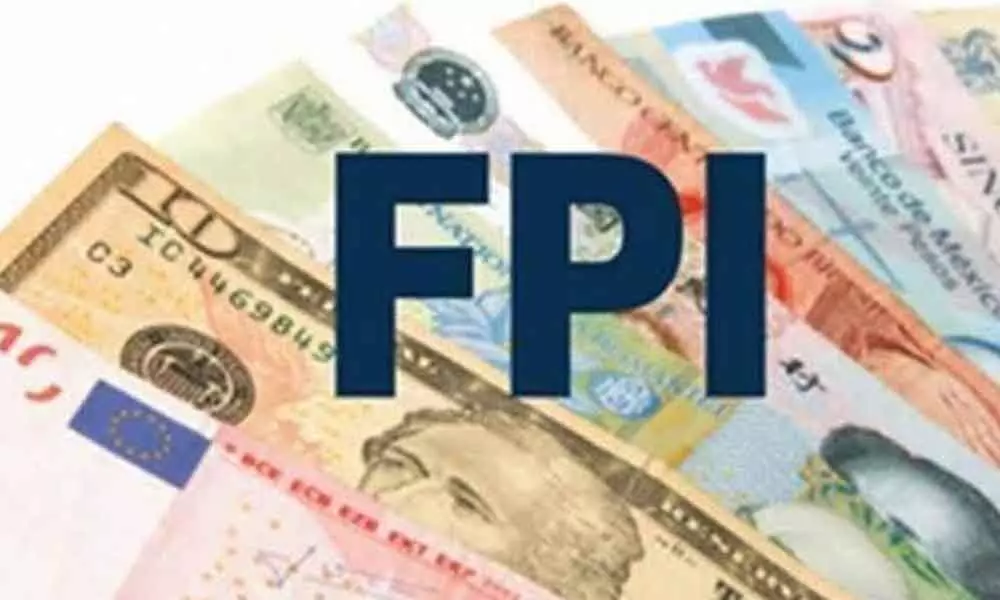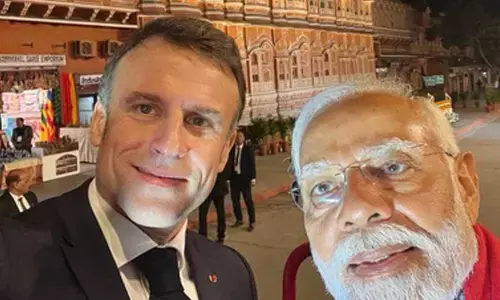FPIs offload Rs 35,506 cr in Feb

Quantum of outflow in Feb ’22 is highest since March ’20 when overseas investors had pulled out Rs1,18,203 cr
New Delhi: Continuing the selling streak for the fifth consecutive month, foreign portfolio investors (FPIs) pulled out as much as Rs 35,506 crore out of the Indian markets in February.
FPIs have been pulling funds out of the Indian markets since October 2021 and the quantum of outflow in February 2022 is highest since March 2020 when overseas investors had pulled out Rs 1,18,203 crore. "The pace of outflows increased sharply after US Fed's decision to unwind stimulus measure and increase interest rates sooner than later.
"In addition to that, brewing tension between Russia and Ukraine, and with fears of war between the two countries looming large, foreign investors adopted a cautious approach and started to stay away from investing in emerging markets like India," Himanshu Srivastava, associate director (manager research) of Morningstar India, said. Now, with Russia invading Ukraine, geopolitical tension of such a magnitude doesn't augur well for emerging markets like India with respect to foreign flows as such markets are considered to be riskier investment destinations and more prone to geopolitical turmoil compared to developed markets, he added. During February 1-25, FPIs pulled out Rs 31,158 crore from equities, Rs 4,467 crore from the debt segment, according to depositories' data.
However, the pumped in Rs 120 crore into hybrid instruments during the same time. Geojit Financial Services Chief Investment Strategist V K Vijayakumar said it is difficult to anticipate how the Ukraine crisis will unfold. If the conflict lingers for some time, the consequences for the global economy would be severe. "Crude oil at USD 104 a barrel would be bad for Indian's macros. Trade deficit will widen, the rupee would depreciate further, and inflation will rise above RBI's comfort levels forcing the central bank to abandon the accommodative monetary stance.
This can impact India's growth recovery," he said. FPI inflows are nothing but hot money and mainly follow four parameters, said Shrikant Chouhan, head (equity research-retail) of Kotak Securities. First is the trend of the Indian rupee vis-a-vis the dollar trend. The dollar and the rupee have an inverse relationship, second oil prices. If they are at higher/elevated levels then it makes them less interested in investing in emerging markets as most of them are heavily dependent on imports which hurt the basic fundamentals, he said.
Third, if the US 10-year bond yield rate starts to move upwards, it makes more sense to invest in the bond market than to hold money in riskier assets like equity and finally, if the country in which they invest is to face a political event, it invites volatility and brings about a sudden change in price. "Unfortunately, all these things are getting impacted at the same time, which is why there is more possibility of further outflow from FPIs," Chouhan said. For the future of FPI flows, Nitin Raheja, executive director and head (discretionary equities) of Julius Baer, said the Ukraine crisis and its impact on the energy markets will mean that for the near term, there might be a risk-off trade globally which is never good for emerging markets.














